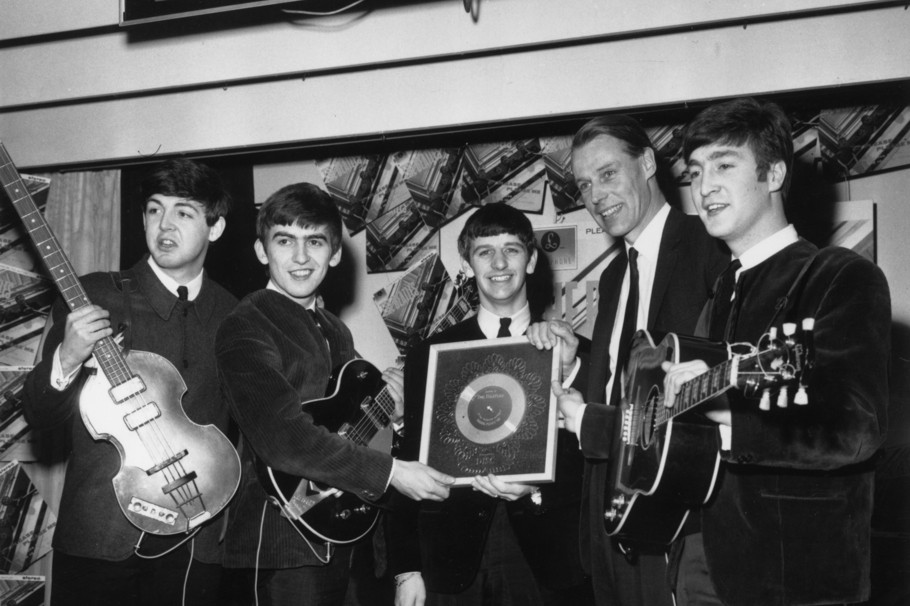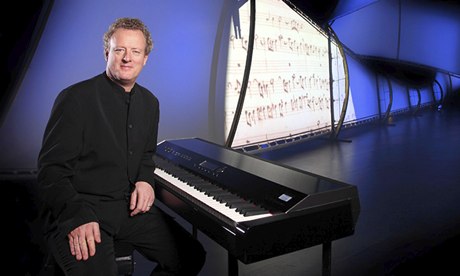Author and television writer David Simon mourned that “if the rest of us could all have such a shepherd for our works, the world might just make sense.” Mark Ronson said that “we will never stop living in the world you helped create.” But the greatest tribute to Beatles producer Sir George Martin – who died March 8 aged 90 – came from Sir Paul McCartney. “He guided the career of The Beatles with such skill and good humour … if anyone earned the title of the fifth Beatle it was George,” he wrote.
Martin’s importance to the entire arc of The Beatles’ career is unrivalled. But he did so much more than just twiddle knobs and tweak choruses for the band who changed music and pop culture forever. Indeed, without Martin, Lennon and McCartney may have remained stuck in a Liverpool skiffle band, grasping elusively at stardom.
After all, it was George Martin, who – as head of Parlophone records – signed The Beatles in 1962 when every other label had turned them down. Even that was a gamble. He’d invited them to a try-out at the EMI studios in London, and although impressed by the clear-eyed songwriting and charisma of Love Me Do, afterwards he’d had to sit them down to tell them where they were going wrong.
As Ian Macdonald tells it in the peerless biography of The Beatles records, Revolution in the Head, Martin then asked them to say if there was anything they didn’t like about the experience. “Well, for a start,” drawled Harrison, “I don’t like your tie.” It made sense: The Beatles were still largely teenagers. But Martin saw the funny side – it may have been serendipitous that Parlophone were mainly producing comedy LPs at the time – and The Beatles were seriously amusing people. It was their personalities he was first attracted to and he would later say that producing a band was as much about psychology, about getting the best out of people, than it was technology.
Love Me Do would go on to be The Beatles’ first single. Listen to it now, and this simple but hugely effective pop song (completely rearranged by Martin) still sounds fresh. And it was Martin who first challenged them to release their own music rather than covers, and then allowed the songs to fly. As MacDonald wrote: “There was no other producer on either side of the Atlantic then capable of handling The Beatles without damaging them – let alone of cultivating and catering to them with the gracious, open-minded adeptness for which George Martin is universally respected in the British pop industry.”
And Martin was certainly gracious. He may have called himself a mere “interpreter” of Lennon and McCartney’s ideas rather than their creative genius, but his real skill was to spot that The Beatles were becoming more and more inquisitive. The pop critic Pete Paphides noted today that Martin’s background in comedy enabled him to “realise the Fabs’ most fanciful ideas”, and “meant that he didn’t shake his head and say ‘sorry boys that’s going to be a bit tricky’ when they came to him with ever more outlandish ideas”.
This meant that, by the time The Beatles were entering their mid-1960s, psychaedelic phase and coming to the Abbey Road studios with the vague notion of a song with tambura and sitar, hitherto unheard-of drum loops, backwards guitar and a vocal sounding like the Dalai Lama, Martin dived straight into the anarchy, rather than tempering it. The result was 1966’s Tomorrow Never Knows – one of the most influential songs of the 1960s. Its exhilarating legacy lives on: The Chemical Brothers called the track their “manifesto”.
Martin would go on to arrange the memorable backing scores for Eleanor Rigby, Sgt Pepper’s Lonely Hearts Club Band, Strawberry Fields Forever and perhaps his finest arrangement, I Am The Walrus – confirming his status as an equal of his illustrious charges.
When The Beatles collapsed, he produced for stars including Kenny Rogers and Elton John, and had a part in some of the very best James Bond themes. In later life, the peerless work with The Beatles allowed him to pick the projects he was intrigued by. But George Martin will always be synonymous with the brilliance of the Fab Four.
As the other remaining Beatle, Ringo Starr, tweeted: “Thank you for all your love and kindness, George. Peace and love.”


